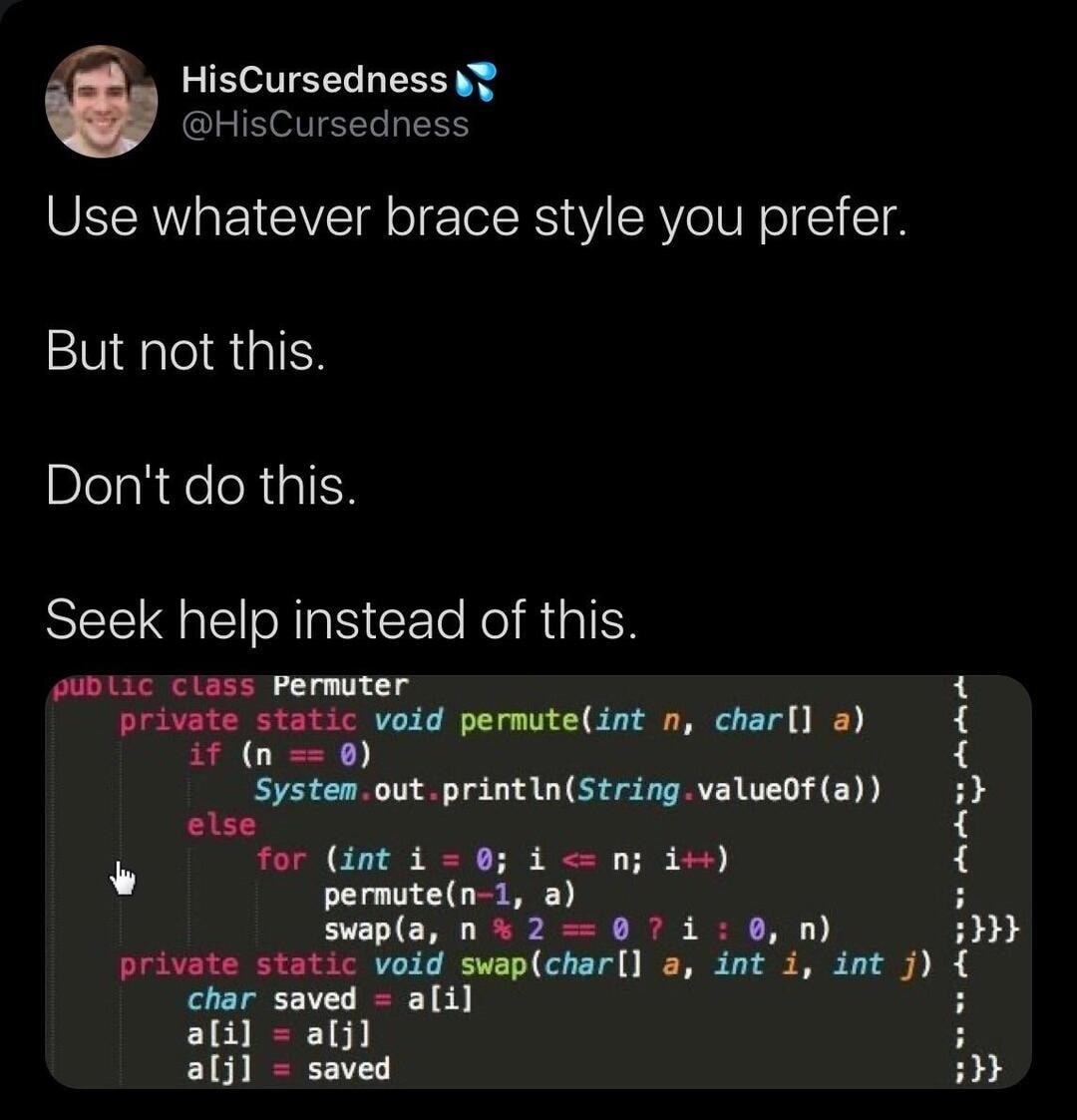this post was submitted on 28 Jul 2024
1312 points (99.0% liked)
Programmer Humor
24287 readers
449 users here now
Welcome to Programmer Humor!
This is a place where you can post jokes, memes, humor, etc. related to programming!
For sharing awful code theres also Programming Horror.
Rules
- Keep content in english
- No advertisements
- Posts must be related to programming or programmer topics
founded 2 years ago
MODERATORS
you are viewing a single comment's thread
view the rest of the comments
view the rest of the comments

You can define what happens for an object when an operator is applied (like +, /, or -) so that you can obj+obj. I wonder if there's a way to override "tab" such that it acts like a ":", but from inside the language (this is trivial if you edit the language itself like you suggest). Thinking about it more, I'm guessing not since ":" isn't an operator and this doesn't have a corresponding __operator__ function.
If Python has anything like Perl's source code filters, then anything's up for grabs, but Perl is kind of weird in a way that Python was specifically designed not to be. Or at least Python 1 was. Things may have changed in the intervening couple of decades.
If it's just plain overloading, then whitespace is probably off the table. Spaces, even required spaces, aren't so much syntax as they are structure. You could argue that the curly braces of some other languages are more syntactic than Python's whitespace, because it's actually Python's magic colon and the first unindented line (lack of whitespace!) that serve that specific syntactic purpose.
Examples of Perl's source code filters range from turning a program into binary representation of the syntax tree and still having it be executable, to new syntax, to writing programs entirely in Latin or something that looks almost but not entirely unlike it, anyway.
I see. I would love to be proven wrong, but I don't see a way this would work with tabs/spaces in python.